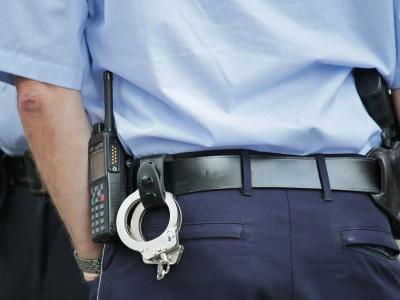Representatives of the Southeast Europe NPM in Ljubljana on the protection of procedural rights in pre-trial proceedings
On 13 and 14 May 2025 the meeting of the Southeast Europe NPM Network (SEE NPM Network) took place in Ljubljana. The participants discussed the role of the NPM in monitoring minimum standards for procedural rights of suspects in pre-trial proceedings in accordance with the recommendation of the European Commission of 8 December 2022. This sets out guidelines for Member States to take effective, appropriate and proportionate measures to strengthen the rights of all suspects and accused persons in criminal proceedings who are deprived of their liberty, both in relation to the procedural rights of persons detained on remand and the material conditions of detention, in order to ensure that persons deprived of their liberty are treated with dignity, that their fundamental rights are respected and that deprivation of liberty is only a measure of last resort.
The SEE NPM Network was established by the NPMs on 26 March 2013 in Belgrade. The purpose of the network is to strengthen cooperation in the region, exchange experience, and organise various joint activities to achieve the most effective implementation of the NPM mandate, as set out in the Optional Protocol to the Convention against Torture and Other Cruel, Inhuman or Degrading Treatment or Punishment (OPCAT). Following the decision of the network members at a meeting in Vienna last November, Slovenia assumed the chairmanship of the network this year.
Deputy Human Rights Ombudsman Ivan Šelih, who is also the head of the Slovenian NPM and the interim head of the institution of the Human Rights Ombudsman of the Republic of Slovenia (Ombudsman), chaired the event and presented the regulations and reasons for detention in the Republic of Slovenia and touched upon alternatives to detention. He also paid attention to the explanations of detention decisions, periodic review of detention by the courts, questioning of suspects, the right to a trial within a reasonable time, and special rules regarding detention for children, women, and other vulnerable groups.
As he said, in Slovenia, the ordering and duration of detention are already defined in Article 20 of the Constitution, and detention is defined in more detail in the Criminal Procedure Act. According to data from the Administration for the Execution of Criminal Sanctions for 2023, the average number of detained persons increased from 377 to 468 detainees, or by 24 per cent, compared to 2022. In 2023, 1,441 persons were detained in prisons, which is 338 more than in 2022. The data on the significant increase in the number of detainees in 2023 further confirms the Ombudsman's warnings about the overcrowding of the prison system and the need for appropriate measures to ensure the human rights of imprisoned persons. The Ombudsman has been warning for some time that, given the increasing number of imprisoned persons, the state must ensure appropriate living conditions for them and greater use of alternative sanctions, as the increase in the number of imprisoned persons represents additional pressure on existing capacities and personnel.
In his presentation, the Deputy Ombudsman pointed out that there are also some alternatives to detention in Slovenia, including house arrest in addition to bail. This measure has been imposed in an average of 20 cases in the last ten years, and last year, according to current data, its use increased significantly (in the first half of the year alone, the measure was imposed 30 times). He also stressed that the restriction of personal freedom is one of the most serious interferences with the fundamental rights of an individual, therefore every measure – be it detention or its alternative – must be imposed prudently, based on an individual assessment, in accordance with the legislation and taking into account the principle of proportionality. Appropriate supervision and regular verification of the justification of individual court decisions are also necessary.
As the Deputy Ombudsman said, in Slovenia, the Criminal Procedure Act also contains special provisions for the detention of minors. It defines detention as an exception, and detention ordered by a juvenile judge lasts a maximum of one month with the possibility of an extension of two months for justified reasons. "If the proceedings before the juvenile court continues after the end of the preparatory procedure, the duration of detention is not limited and can last up to two years. This is problematic and contrary to international standards," Šelih warned. He added that a new law is being prepared that is supposed to shorten the duration of detention of minors. Šelih also said that the law also stipulates that a minor must be detained separately from an adult, but in practice minors (due to overcrowding in prisons) can still be placed together with adults, which is worrying.
While fully recognising the independence of the judiciary, the SEE NPM Network concluded that detention should be used as a measure of last resort and subject to regular judicial review. The possibility of using alternative measures to detention should be systematically examined, in particular where the offence in question carries only a short prison sentence[1] or where the suspect is a vulnerable person. The competent authorities should also ensure that detainees have effective access to a lawyer and appropriate interpretation during their detention. The confidentiality of meetings and other forms of communication, including correspondence between detainees and their lawyers, should be respected. The participants concluded by noting that NPMs can make an important contribution to improving the respect for the procedural rights of detainees by monitoring and reporting on the conditions and circumstances of detention where violations of procedural rights may lead to a risk of torture and ill-treatment.
[1] The recommendation in point 21 encourages Member States to order pre-trial detention only for crimes punishable by a prison sentence of at least one year.













 Back
Back 






